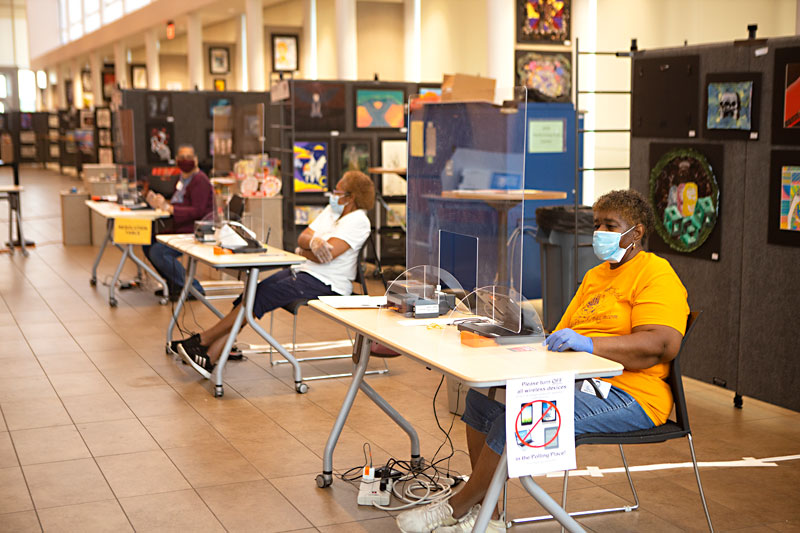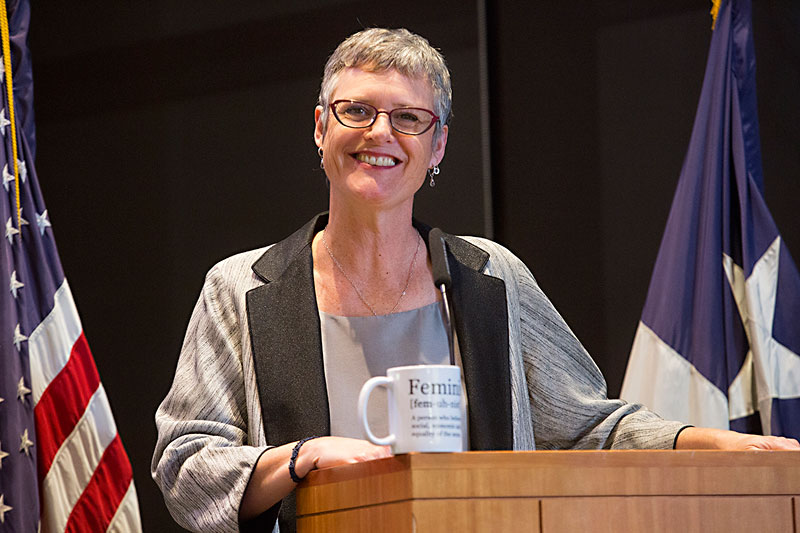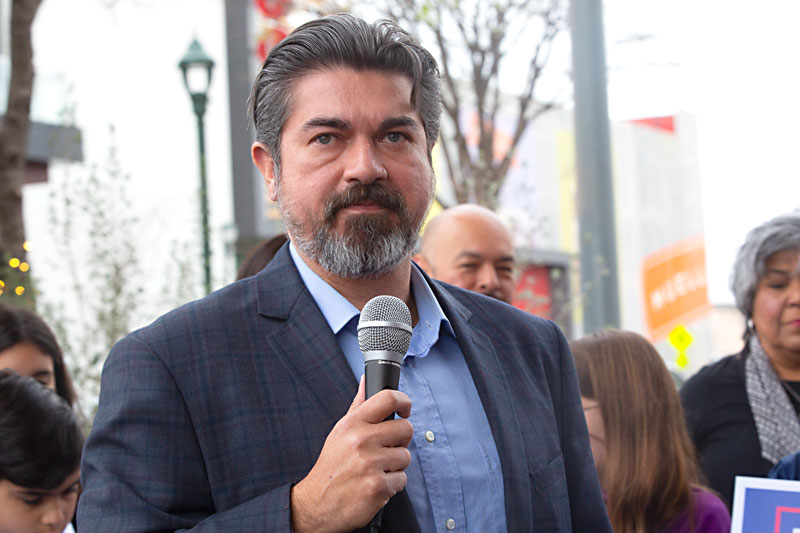Looking at the Hard-to-Handicap Race for a Texas Senate Seat
Who will take Kirk Watson's Texas Senate District 14 seat?
By Michael King, Fri., July 10, 2020

Texas Senate District 14, up for grabs in this month’s special election (concurrent with the run-offs in races left pending back on Super Tuesday in March), encompasses all of Bastrop County and roughly three-fourths of Travis, the latter accounting for 90% of its voters. The terrain, up along the Colorado to out beyond Lakeway, is home to an electorate somewhat more conservative than Austin or Travis County as a whole but still comfortably Democratic.
Former Sen. Kirk Watson, the ex-Austin mayor and one of Central Texas' most popular politicians, announced his resignation in February after 14 years in the Senate; he's now the dean of the University of Houston's Hobby School of Public Affairs. That triggered a special election to fill his unexpired term that by law should have been held in May but was postponed (along with the run-offs) to July 14 due to the COVID-19 pandemic – which, rather than abating, has instead gotten worse just in time for election day.
In theory, the fundamentals still favor the two Democrats on the ballot – former Travis County Judge Sarah Eckhardt and State Rep. Eddie Rodriguez – in a six-person race that also includes two Republicans, a Libertarian, and an independent (you can read more on those candidates). But the circumstances of both an off-cycle special election and a global pandemic have made predictions very uncertain.
Moreover, the considerable, quarantine-related increase in voting by mail (which may account for half the votes cast in the race) may make the election-night outcome slow to determine. (Last month, Travis County Clerk Dana DeBeauvoir said she has the staff and equipment to meet the demand.) Because a yet-to-be-determined number of mail ballot applicants failed to indicate a party preference for the run-offs, the ballots they receive will only include the SD 14 race – if those voters want a full slate, they must go to a polling place, cancel their mail ballot, and vote in person.
The candidates all remark on the strangeness of campaigning under quarantine, without the public events or person-to-person contact that are normally routine in an election. Social media, TV ads, and relentless phone calls are the dominant modes of outreach, interrupted by an occasional virtual candidate forum (Austin Chamber of Commerce, Texas NORML) and a few embodied appearances – during early voting, Republican Waller Thomas Burns II is visiting polling places in mask and gloves, distributing his résumé.
Rodriguez says he especially misses face-to-face conversations with voters that promote his candidacy and also charge up his own enthusiasm. Eckhardt says she's happy to talk with people on the phone, but that the process is missing "all the road marks" of public response and much of the normal feedback. It's also difficult for observers to gauge the state of the race without watching public events and talking to those who attend. For the moment (or the year), this is the new normal.
Dividing the Democrats
An early June poll of 400 likely voters released by the Eckhardt campaign gave her a sizable advantage, with 42% compared to 22% for Rodriguez, and a surprising 23% for the leading Republican contender, former Austin City Council Member Don Zimmerman, who quickly trumpeted the results online. The combined Democratic vote tracks with the electoral history of the district; Rodriguez says he has better internal campaign numbers, that the poll was compiled before he began substantial advertising, and that his social media engagement "views" are off the charts. "We've run about 100 digital ads on social media," he said, "that over 3 million people have seen."
That said, the Eckhardt campaign can credibly point to reasons their poll is accurate. Although Rodriguez has served in the House for 18 years, he's not faced many high-profile challengers before, and his southeast Travis County district includes fewer SD 14 voters than Eckhardt represented as the county's chief executive, elected in 2014 and unopposed in 2018, and as a county commissioner before that.
Part of a famous Texas Democratic family, her father Bob having served in Congress, Eckhardt has been a regular Austin newsmaker, but never more so than with her highly visible leadership alongside Austin Mayor Steve Adler of the city and county response to COVID-19. Even after stepping down as county judge to enter the SD 14 race (as required of her, but not Rodriguez, by law), Eckhardt has continued her COVID role as an unpaid "emergency manager" to Interim Judge Sam Biscoe. The ethics of Eckhardt's quasi-official, in-and-out but very public position have been roundly criticized by the Rodriguez campaign.
Eckhardt and Rodriguez concede that on "the issues" – budget priorities, health care, criminal justice, etc. – they are both solidly Democratic, with the differences between them mostly ones of emphasis. In response to the reflexive campaign question of "first bill as a senator?," Eckhardt says she'll move to expand Medicaid – a recurrent Democratic proposal that Rodriguez agrees might finally have better prospects in 2021. He says he'll work for "universal broadband," meaning both for rural communities (i.e., Bastrop County) and, even more urgently, as a response to the "digital divide" that amplifies urban inequities via lack of wi-fi access for poorer neighborhoods and families.
Small Differences Made Big
More broadly, Rodriguez is running on his decades (before succeeding Rep. Glen Maxey in 2002, Rodriguez was his chief of staff) of House service and bill-wrangling experience; Eckhardt cites her executive, problem-solving history as prosecutor, commissioner, and judge. Primary campaigns between like-minded candidates inevitably emphasize the narcissism of small differences, and this campaign has recently become a venue of increasingly bitter tit-for-tat charges and counter-charges, which both candidates say the other started.
The Rodriguez campaign claims Eckhardt is effectively evading the state's resign-to-run law by continuing to work for Biscoe, which they claim is an "unethical and possibly illegal" conflict of interest. Early on, the Eckhardt campaign released a harsh mailer attacking Rodriguez for missing a House vote in 2019 supporting expansion of the Sandra Bland Act (preventing police from jailing people for minor offenses), even suggesting Rodriguez isn't serious about criminal justice reform because he's had some organized law enforcement support in previous races (unsurprisingly, so has Eckhardt). Rodriguez responds that it was an unannounced procedural vote that he missed unawares (along with other Democrats who supported the bill) because he was working on another matter. More substantively, he told the Chronicle, "I take that attack very personally, and below the belt as a person of color ... I think it was a desperate measure."
In response to the conflict-of-interest charges, Eckhardt says the pandemic is an "all-hands-on-deck situation" and that the Commissioners Court unanimously approved the unusual arrangement with Biscoe when she resigned ("Travis County Judge Sarah Eckhardt's Long Goodbye," April 3, 2020). "Local officials have had to defer to state mandates and inaction for too long, and we've been trying to solve local problems that need state action," she says. "I want to work on these problems at the state level, 365 days a year." Rodriguez says bluntly, "She quit in the middle of a pandemic, and she wants to have it both ways. If you care that much, you don't leave the job." (His campaign has a TV ad featuring Eckhardt joking about her decision to a reporter, "I flipped a coin.") In the Chamber of Commerce Zoom forum, Eckhardt said that she initially had decided not to run but concluded that would be "wimping out" on the challenge and changed her mind.
Rodriguez insists ("my hand to God") that if he'd had to quit in order to run for Senate, he wouldn't have entered the race: "I want to be in the game helping my constituents." As is often the case, the Legislature did not burden itself with the resign-to-run obligation it placed on other officials (i.e., potential challengers), so Rodriguez will remain in the Lege regardless of the SD 14 outcome. Having labored in relative obscurity for decades as a member of the minority party in the House, this rare chance for a Senate promotion is an understandable one for Rodriguez to take; notably, he enjoys the support of most of his Central Texas colleagues, including Reps. Celia Israel and Donna Howard, who both publicly considered and then declined to enter the race themselves.
Despite Eckhardt's apparent lead in polling (which also reflects the strength of women candidates among local Democratic voters), Rodriguez has enjoyed a sizable lead in fundraising (more resources for those digital ads) and appears to have the edge in endorsements from clubs and organizations as well as those of his colleagues. (Recently, he had booked $700,000, Eckhardt less than $200,000.) Eckhardt says donors and lobbyists know that whatever happens, he'll remain in the Legislature, while she's an unfamiliar wager. Responds Rodriguez, "Then why is she being turned down by those same lobbyists – when they tell me she's come to them asking for support?" Rodriguez supporters have also filed complaints with the Texas Ethics Commission about particular Eckhardt contributions. "I expect more of that," Eckhardt says. "We're following the law, but anyone can file a complaint about every nickel and dime."
With additional charges in these veins lodged by the Rodriguez campaign as early voting began, assuming that Eckhardt is indeed leading the race, one can see a strategy to drive up her negatives and force her into a run-off. Eckhardt suggests such endgame "character assassination" represents Rodriguez's "only path to victory"; Rodriguez dismisses that charge, saying he is running as a "proven progressive" who has spent his legislative career fighting to "pass meaningful legislation" while also to "stop bad bills."
Recently, campaign vitriol rose to an absurd level, when Rodriguez's House Chief of Staff Summer Luciano wrote and shared a (since-deleted) post to Facebook, repeatedly describing Eckhardt as an "entitled, privileged white woman" and her "pearl-clutching" supporters as "vagina-blinded." (Eckhardt's campaign leapt at the chance to use the post in a fundraising email.) Nevertheless, insists Rodriguez, "This campaign is not about me or Sarah. ... I've been there through tough budgets, repeated redistricting ... fighting for immigrants rights, voting rights, LGBTQ rights. ... I'm a proven progressive who fights for working families."
Will the Dust Settle?
Whether you call it "hardball" or "mudslinging," political campaigns are seldom genteel. But a couple more months of this hyperbolic rhetoric could make for considerable hard feelings, as two hard-working and effective public officials each attempt to make the other appear an unrepentant scoundrel. Eckhardt and Rodriguez both say that whatever the outcome, they'll certainly work together in the future.
Even if a run-off is inevitable in a six-candidate race, will it be between the two Democrats? Or does their mudslinging increase the odds for one of the others, likely Zimmerman, to steal second? Waller Thomas Burns II told the Chronicle that Travis County Republican Party Chair Matt Mackowiak tried to persuade him to remain an independent (as he had initially filed), or even better, to drop out in Zimmerman's favor. "He almost demanded it," Burns said. "He said 'We're going to support Zimmerman and we don't want another Republican on the ticket.' ... But I told him no because I consider myself a conservative Republican."
Burns, who ran for Austin City Council in 1996, figures to draw some votes from moderate Republicans distressed at Zimmerman's Fox News-style grandstanding. (Zimmerman declined to be interviewed by the Chronicle; his TV ad features the candidate, an engineer by trade, riding on a steer and shoveling cowshit.) Pat Dixon, the former chair of the state Libertarian Party, also served two terms on the Lago Vista City Council and has a decent reputation among local voters, and physician Jeff Ridgeway, while running an extremely DIY independent campaign, might pick up support from protest voters.
Any run-off, even between the two popular Democrats, will mean campaigns must slog on for weeks under bad or worsening pandemic conditions, ending sometime in September or October (an exact date is up to Gov. Abbott) with what could be minuscule turnout.*[See correction below.] The winner will serve out Kirk Watson's unexpired term (through 2022). One wonders if Watson – a friend to both these Democrats, and therefore not endorsing either – realized what sort of political minefield he was leaving to his younger colleagues. Voters will have to figure it out for themselves.
*Correction: the story originally described the potential run-off terms inaccurately. According to the Secretary of State's office, Gov. Abbott has until July 28 to conduct the first-round canvass, then call the run-off "on a Tuesday or a Saturday between 70 and 77 days after the election is called. If it gets called on July 28th, then the window for the election would be from 10/6 to 10/13." The winner of the run-off serves the remainder of Sen. Watson's unexpired term, through 2022.
Got something to say? The Chronicle welcomes opinion pieces on any topic from the community. Submit yours now at austinchronicle.com/opinion.










